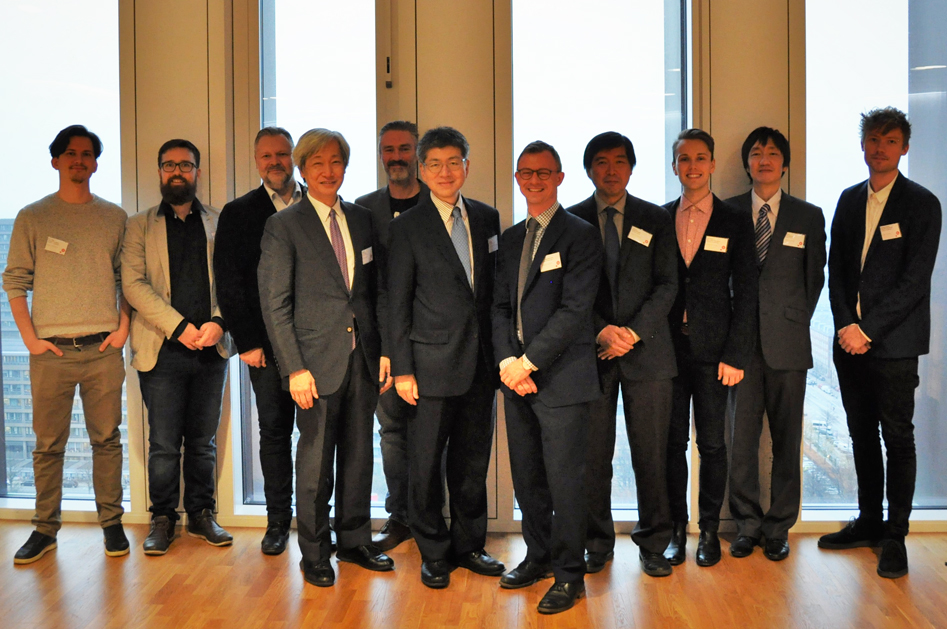First Copenhagen-Tokyo IARU Conference
in International Relations
| 日時: | 2018年11月23日(金) |
|---|---|
| 場所: | コペンハーゲン大学 Mærskタワー |
| 主題: | A Century of International Relations: The Politics of Crisis, Uncertainty, and Disorder |
| 言語: | 英語 |
| 共催: |
コペンハーゲン大学 東京大学 |

PROGRAM
09.30-10.00 Introductions and ongoing projects
10.00-11.00 First Session: The Politics of Crisis
11.00-11.15 Coffee Break
11.15-12.15 Second Session: IR on/in Crisis
12.15-12.30 Signing Ceremony
12.30-13.30 Lunch at Mærsk Tower
13.30-14.30 Administrative Meeting: Regarding Future Collaboration,
with Head of Studies and Head of Department, Department of Political Science.
14.30-16.00 City walk to venue
16.00-17.30 Public Debate on The Liberal Order Seen From Japan organized
by the Danish
Foreign Policy Society, Vartov, Great Hall.
INTRODUCTION
The discipline of International Relations was allegedly founded in the interwar period to solve the
problem of war and conflict. The conventional story is that it was born during what E.H. Carr called
the ‘Twenty Years’ Crisis (1919-1939) of major economic and financial crisis, protectionism and
trade wars, rising populism, nationalism, and illiberalism, growing threats to the existing
international order posed by a power transition from the ‘haves’ to ‘have-nots’, increasingly
assertive territorial and geopolitical revisionism and an inability, if not unwillingness, on the part of
established (liberal) powers to provide global leadership. Whether this origin myth is true or not, it
is hard not to experience some sense of déjà vu as the discipline prepares for the centenary
celebrations next year; that we are yet again experiencing an ‘interregnum’, a period of crisis,
uncertainty, and disorder, and in that sense that history has returned with a vengeance, little
progress has made and, therefore, that there is little reason to celebrate.
This first Copenhagen-Tokyo Conference in International Relations brings together scholars of international political economy, security studies, diplomacy, and foreign policy to discuss the politics of crisis, uncertainty, and disorder and the role of academic International Relations in it. The conference is organized into two corresponding sessions guided by a number of subquestions that participants are invited to address in the general discussion. The discussion is organized as a roundtable and each participant is asked to prepare a few minutes presentation addressing the questions for each session.
First Session: The Politics of Crisis
Has world politics entered into a state of crisis and disorder? If so, what does the current ‘crisis’look like from Europe and Asia – and how is it different from earlier crises? As the state of crisis seems to extend from traditional domains (political, economic, currency, diplomatic, territorial, geopolitical crises) to a range of non-traditional – and in some cases newer - ones (climate, technological, truth, humanitarian, food, migration crises), what are the dangers of lumping together these disparate crises into an overarching discourse of systemic—or perhaps ‘organic’— crisis: the “Twenty Years’ Crisis” then or the current debate on the crisis of the ‘liberal international order’? What does the discourse of ‘crisis’ do in the current political climate and what policies is it conducive of (austerity, containment, etc.)? Finally, participants are invited to reflect on the extent to which their own work touches upon the politics of crisis.
Second Session: IR on/in Crisis
In the second session, participants are invited to reflect the role of the discipline of International
Relations after a century of great expectations to its role in crisis and conflict resolution: Is there
some modest cause for optimism, if not celebration, or is IR itself in a state of crisis? What is our
public responsibility as academics and experts in relation to contemporary political anxieties about
a looming crisis and wider transformations of global order?
